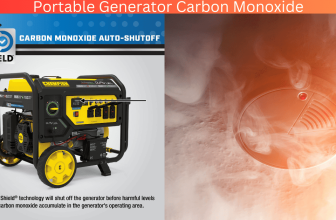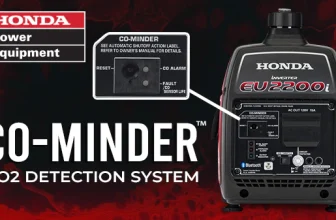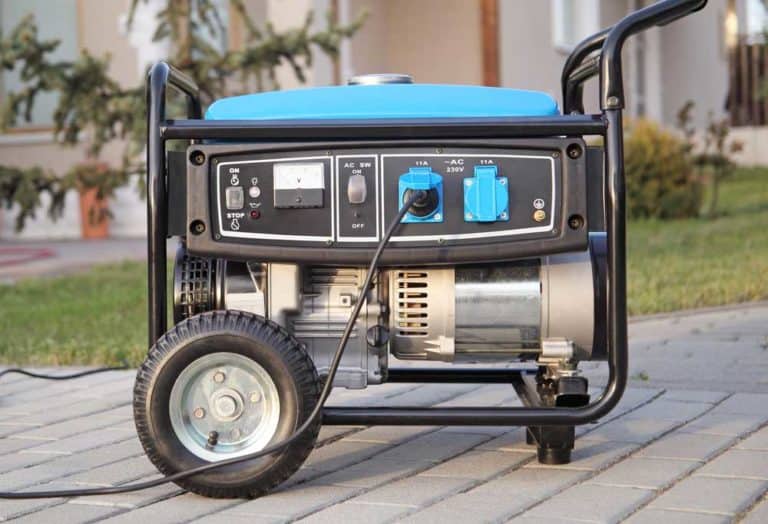
A generator is one of the important devices you need to have for your household or RV. Without an electric power source, a generator can keep your refrigerator and freezer running. It can help keep your perishable food intact. It allows you to live a normal life even if you are off the grid.
Maybe you are wondering – can a generator damage a refrigerator?. Well, the simple answer is YES. But, you can prevent it from happening if you know how to use a generator properly.
Using Generators To Power A Refrigerator
There are different types and sizes of generators. It can power small or large appliances, depending on the generator’s power output. When choosing the right generator for your refrigerator, you need to determine the power requirement to pick the appropriate generator size.

Before we answer the question, “can a generator damage a refrigerator?”. First, let’s discuss the two types of refrigerators commonly used in residential homes and recreational vehicles.
Compressor Refrigerator
It is also known as a residential refrigerator. It is compressor-driven and gets power from the AC/DC in a home. You will need an inverter to run the appliance if you use this type of refrigerator in your RV.
Absorption Refrigerator
This type of refrigerator is very common in RVs. Since they are designed for RV use, this type of refrigerator can run off LP gas or electric power. Compared to compressor refrigerators, absorption refrigerators tend to take several hours to cool.
Your generator should have enough watts of power to power your refrigerator. You should consider the starting watts and the running watts of your refrigerator. Usually, the starting watts are 3 or 4 times higher than the running watts. Thus, you cannot run a 700-watt refrigerator in a 700-watt generator.
You can find the details on the needed watt for your refrigerator in the operation manual. If you can’t find it, you can guess with the help of this formula: Starting Watts = 4 x Running Watts.
So, can a generator damage a refrigerator? Read on to know the detailed explanation.
Can A Generator Damage A Refrigerator?
The big question is, “can a generator damage a refrigerator?”. The answer is YES. The possibility is there, but you can avoid it by properly using the generator.
Generators generate electricity by using fuel. The electricity is then used to run your refrigerator and other appliances. So, what are the things you need to keep in mind to avoid damaging your refrigerator?
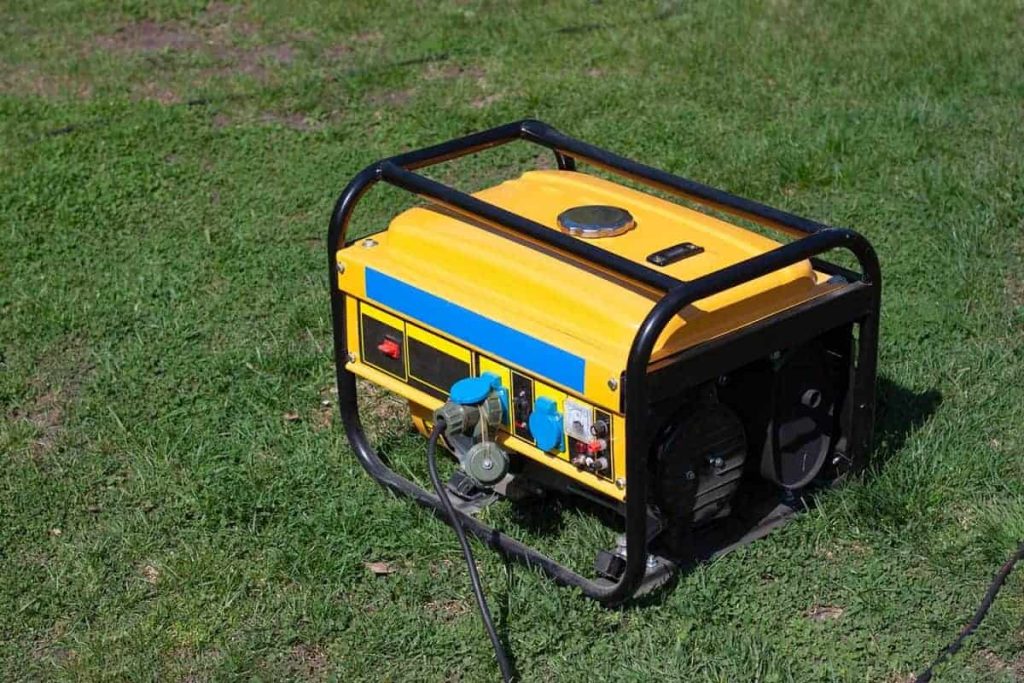
- Make sure you got the right size of generator for your refrigerator. If the generator does not have enough power, it could cause damage to your refrigerator. It could damage the compressor, expansion valve, and electronic components.
- The outlet that you use to power your refrigerator is important. In case of fluctuations, the socket should cut off the connection automatically. This will prevent the refrigerator from getting damaged.
- The important one is not to overload your generator as it may also cause damage to your refrigerator and other appliances. Only use the generator for important appliances like refrigerator and freezer.
Maybe you are also wondering how long can a refrigerator run on a generator. Well, you can run it on a generator as long as you have enough fuel to operate the generator. If you have a good-sized generator, then you should be able to run your refrigerator for several hours.
How To Safely Use A Generator
Again, if you are curious – can a generator damage a refrigerator? The simple answer is – YES! The possibility is there, but you can avoid this situation from happening if you follow these tips on how to use a generator safely.
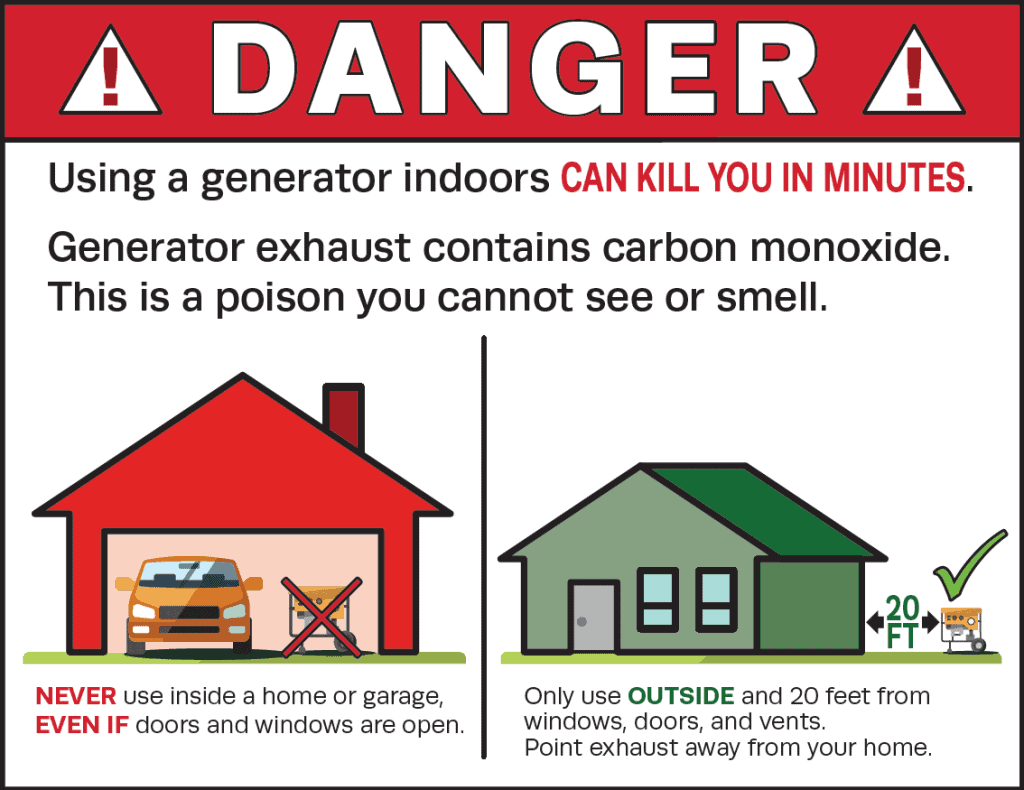
- Do not overload the generator. If you overload, it can cause damage not only to your refrigerator but also to the other devices that are plugged into the generator.
- Some generators are not designed for powering refrigerators and other home appliances. Make sure you get the right type for your needs.
- Make sure the generator is properly grounded. When the generator comes into contact with water, electrocution is reduced or avoided.
- Generators must be kept in a well-ventilated area. As the generator generates power from fuel, it emits gas waste, which is hazardous. Make sure there is proper ventilation to avoid carbon monoxide buildup.
- To monitor the carbon monoxide level, make sure to install a working carbon monoxide alarm. This is to avoid carbon monoxide poisoning.
- Do not refuel a running generator. Allow the generator to cool off first before putting the fuel.
- Always keep the generators away from open windows and doors.
- Use extension cords wisely. Do not overload them.
- Always follow the manufacturer’s manual for both your refrigerator and generator. This will help you prevent any damage.
How About Other Appliances And Devices?
Yes, generators can damage other appliances and electronic devices if not used properly. Whether you are using a 5000-watt generator or a 10000-watt generator, damaging your appliances is still a possibility.
The key here to avoid damage is to use the generator properly. Improper use of a generator can cause back feeding. This means that the power is sent back through the utility lines and into your appliances.
During emergencies and power outages, do not power all your appliances with a generator. Use the generator only for important appliances and devices. This is to avoid overloading and consuming too much fuel. Also, always follow the safety guidelines on how to use a generator.
Conclusion
There is no question about how important generators are. If you got the best portable generator for your home or RV, you can absolutely power your refrigerator, mobile phones, and other electronic devices.
Can a generator damage a refrigerator? Yes, it can. So, make sure that you follow the dos and don’ts of running a refrigerator on a generator.
If you also want a safer option, you can also consider buying an inverter generator. It is a more advanced type of generator that is more friendly when it comes to devices and appliances with electronic components.



